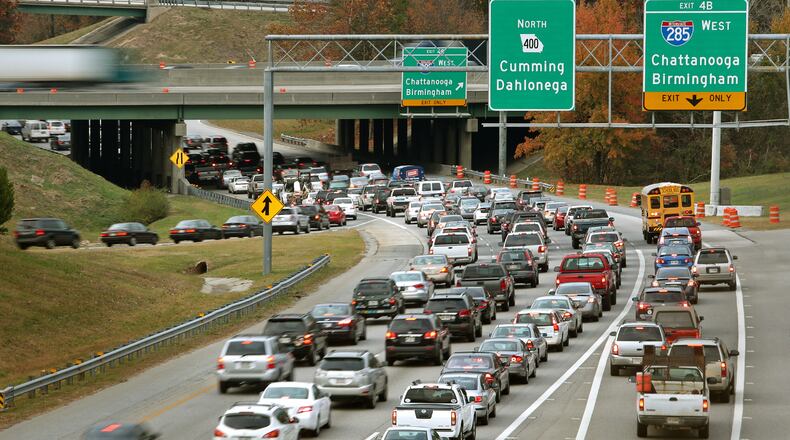Senate leaders on Tuesday will unveil their own plan to raise nearly $1 billion in new revenue for transportation, rejecting the House’s plan for a 29.2-cents-per-gallon gas tax and instead proposing a lower tax at the pump and more user fees.
The new proposal comes as the chamber's Transportation Committee expects to meet at 3 p.m. to go over details and likely vote whether to move it forward. Committee passage Tuesday would keep House Bill 170 on track for a floor vote as soon as Friday.
According to details obtained by The Atlanta Journal-Constitution from people with direct knowledge of the changes who were not authorized to speak on the record, the new version of the bill includes:
- A 24 cents-per-gallon state excise tax on gasoline and diesel, down from the House's 29.2 cents-per-gallon proposal.
- An annual "highway user impact fee" of $25 per passenger vehicle and $50 per truck or bus; essentially an additional fee charged as vehicle owners annually renew their tags.
- A $5 rental car fee, charged at a flat rate for all rentals regardless whether they are for business or pleasure.
- A $250 million annual payment toward debt service for the state Department of Transportation, to allow the department to free up a matching amount toward its motor fuel fund to pay for projects statewide.
- Allowing local cities and counties to collect sales taxes on motor fuel up to $3.39 per gallon for initiatives including special option local sales taxes, optional education sales taxes and local option sales taxes. There would otherwise be no restrictions on how local officials may use money collected through those initiatives.
The Senate’s proposal would also leave alone several proposals included in the House’s version, such as:
- A user fee for electric vehicles of $200 per year for private cars and $300 per year for commercial vehicles.
- Elimination of the $5,000 state tax credit for the purchase of an electric car.
The new version of HB 170 reflects what Senate Transportation Committee Chairman Tommie Williams, R-Lyons, has said is a more conservative caucus in the GOP-led chamber that wanted to diversify revenue so it wasn't as dependent on a high gas tax.
About the Author
Keep Reading
The Latest
Featured



